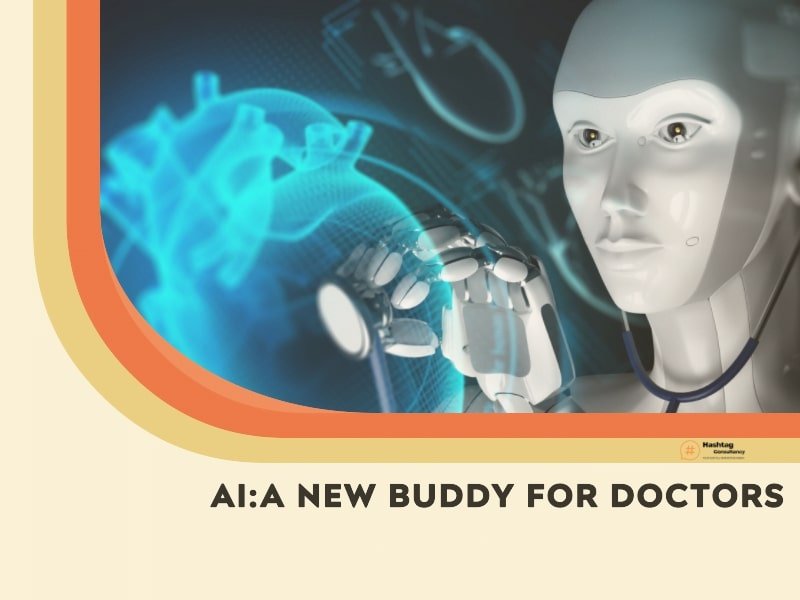Introduction:
In recent years, the healthcare industry has made significant strides, and one of the most promising technologies to emerge is artificial intelligence (AI). Artificial intelligence (AI) is revolutionising several industries, including healthcare, with its capacity to analyse enormous volumes of data and produce insightful analysis. We will discuss whether AI may be viewed as a new friend for doctors as we examine the role of AI in the medical industry.
Enhancing Diagnostic Accuracy:
The ability of AI to increase diagnostic accuracy has proven to be one of its most promising applications. Medical pictures such as X-rays, CT scans, and MRIs can be accurately and effectively analysed by AI algorithms. AI algorithms can identify patterns and anomalies that a human eye would miss by comparing patient photos to a sizable database of known cases. This helps clinicians make accurate diagnoses and create effective treatment strategies, which ultimately improves patient outcomes.
Streamlining Administrative Tasks:
Doctors frequently have a lot of administrative work to do, which takes up a lot of their time and limits their ability to care for patients. AI-powered technologies that automate numerous administrative procedures can lessen this strain. AI chatbots, for instance, may schedule appointments, respond to frequent patient questions, and give basic medical advice. Doctors can concentrate more on complex medical decisions and individualised patient care by delegating these basic activities.
Data-Driven Treatment Recommendations:
AI algorithms excel at analyzing vast amounts of patient data, including medical records, treatment outcomes, and research papers. By mining this data, AI systems can identify patterns and trends that can aid doctors in making treatment recommendations. For example, AI can assist in determining the most effective medication for a particular condition based on a patient’s medical history, genetic information, and demographic factors. By incorporating AI-driven insights into their decision-making process, doctors can provide more tailored and evidence-based treatments to their patients.
Improving Patient Monitoring:
Continuous monitoring of patients in hospitals or after discharge is crucial for detecting any signs of deterioration or complications. AI-powered monitoring systems can analyze real-time patient data, such as vital signs, lab results, and wearable sensor data, and raise alerts when anomalies are detected. This enables doctors to intervene promptly and provide timely medical interventions, thus improving patient safety and reducing the risk of adverse events.
Ethical Considerations:
Although AI has a lot of potential for the healthcare industry, it also presents significant ethical questions. Sensitive health information must be safeguarded from unauthorised access and misuse, and patient privacy and data security must come first. Doctors must also make sure that their patient treatment is still human-centered and does not simply rely on AI recommendations. AI should be considered as a useful tool to supplement rather than replace the skills of doctors.
Conclusion:
Unquestionably, AI is evolving into a crucial ally for physicians, improving their capacity to make accurate diagnoses, automate administrative processes, offer data-driven treatment recommendations, and enhance patient monitoring. To ensure that patient care remains the priority, it is crucial to find a balance between AI and human expertise. Medical practitioners must embrace AI as a trusted partner in providing effective, accurate, and compassionate healthcare services as the area of AI continues to develop.


